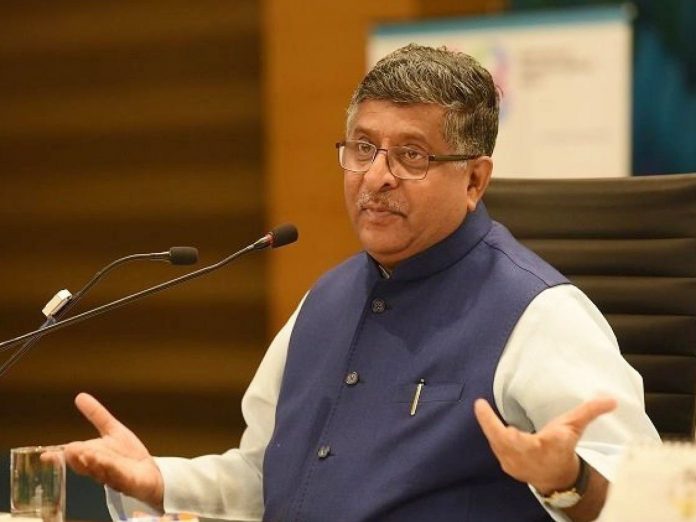By Surendra Bhatia
It’s such fun listening to comments of politicians, especially ministers. The latest one that has lightened hearts, given a spike to blood circulation due to multiple bouts of hysterical laughter, and brought high fives all around, because it is always a pleasure for the aam janata to realise that it is so much smarter than ministers, comes from Ravi Shankar Prasad, in charge of the ministry of law and justice, no less.
Quoting Film Information editor Komal Nahta that three films collected Rs. 120 crore in just a single day – October 2 – Prasad asserted that this proved that the nation’s economic health was just fine. In face of reports that unemployment rate had shot to its highest ever, and a report by the International Monetary Fund stating that India’s economic slowdown is more pronounced this year, Prasad took refuge in box-office collections.
This presents economists in India and the world over a startlingly new parameter to gauge a country’s economic well-being. They can dump their graphs and tedious analysis of incomes, revenues, tax collections, unemployment figures, industry outputs, and just go by the weekly box-office put out by Film Information. (Or, perhaps not, as it may lead to further unemployment!) If we accept Prasad’s argument that when films do well, the nation’s economy is doing superbly, he would have to accept the converse, that when films flop, they reflect poorly on the same economy. Sounds right, doesn’t it? In this context, maybe someone should whisper in Prasad’s ears that 85% of films in India failed to earn back their investment in 2018, and it is not expected to be any different in 2019. So, is the economy doing well or what?
Someone should also mention to Prasad the possibility that, during recession and with so many people unemployed in the country, the only easy relief for the aam janata is to go to cinemas and put their own troubles on the backburner for a few hours. It’s also one not-so-expensive way for the unemployed to pass time.
Politicians and ministers often talk through their hat. Citing one-day collections of three films to validate the country’s economy is like pointing out high milk yield of three cows to certify that there’s no milk shortage in the country. In a politician’s world, that might make sense but in the real world, reports put out by reputed institutions carry more weight than a politician’s word.
Oh, by the way, this argument was used in 2016 too, to state that demonetisation had not led to currency shortages because Dangal, released weeks after demonetisation, had a glorious run at the box-office. This proves, perhaps, that films are of great use to politicians but only when they (politicians) are in trouble.
Indications of slowdown notwithstanding, Union minister Ravi Shankar Prasad on 12th October said, three Bollywood movies generating collections of Rs. 120 crore on the October 2 holiday suggested the “sound economy” even as he dubbed “wrong” the National Sample Survey Office report which had reportedly pegged unemployment rate at a 45-year high in 2017.
Days after the International Monetary Fund said, the economic slowdown was more pronounced this year in India and Brazil, Prasad said, the measurement was incomplete.
He alleged that some people, organised against the government, were misleading people over the unemployment scenario.
“Noted trade analyst Komal Nahta has said that on October 2, which is observed as one of the national holidays, three Hindi movies garnered Rs. 120 crore business. Unless the economy is sound in the country, how can only three movies collect so much in a single day?” Prasad asked while speaking to reporters.
He was in Bombay to campaign for the BJP for the October 21 Maharashtra assembly polls.
The National Sample Survey Office’s periodic labour force survey had stated that unemployment was at a 45-year low.
The report had generated a lot of political heat, with the then Congress president Rahul Gandhi saying, the Modi government had promised two crore jobs, but five years later, a “leaked job creation report card” had revealed a “national disaster”.
Earlier, Niti Aayog vice chairman Rajiv Kumar had countered the report saying, “It is not finalised. It is a draft report.”
Prasad, who holds Law and Justice, Communications and Electronics and Information Technology portfolios, said, “I have given you ten parameters where economy is performing well, but not a single one is reflected in the (NSSO) report. Hence I call it a wrong report.” Singling out India and Brazil, IMF managing director Kristalina Georgieva recently said that 90 per cent of the world is likely to have slower growth in 2019.
































